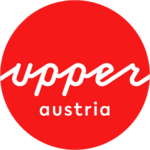Bad Ischl Salzkammergut
European Capital of Culture 2024
Europa celebrates...
...Bad Ischl and the Salzkammergut as its Capital of Culture. For the first time in history, the prestigious title was awarded to an inner-Alpine, rural region. The result is a cultural region that has reinvented itself through the interplay of art, culture, business and tourism. With a programme fed by international impulses that brought new voices and perspectives to the Salzkammergut. and tourism. With a programme fed by international impulses that bring new voices and perspectives to the Salzkammergut.
Europa is a Phoenician king's daughter of Greek mythology. She fell in love with the god Zeus, who approached her in the form of a bull. Today, Europa and the bull are a symbol of a united Europe.
Culture is the new salt
The Salzkammergut boasts a vast wealth of fascinating stories, places and people in a spectacular landscape. The influences of salt, water and wood combined to create this multifaceted region, where the history of salt mining began 7,000 years ago in Hallstatt. The salt trade has supported the region, enriched it and connected it to the world; powerful and wealthy people have been attracted to the area; and the invention of the summer retreat has transformed the Salzkammergut into a dream tourist destination. Today, the historic cultural landscape of the Inner Salzkammergut is on the UNESCO World Heritage List.
Four programme strands
The programme for the 2024 Capital of Culture Bad Ischl–Salzkammergut highlights opportunities for shaping our future in four key areas.
23 towns and villages
23 communities in the provinces of Upper Austria and Styria make up the Capital of Culture region: the flagship town of Bad Ischl, Altaussee, Altmünster, Bad Aussee, Bad Goisern, Bad Mitterndorf, Ebensee am Traunsee, Gmunden, Gosau, Grünau im Almtal, Grundlsee, Hallstatt, Kirchham, Laakirchen, Obertraun, Pettenbach im Almtal, Roitham am Traunfall, St Konrad, Scharnstein, Steinbach am Attersee, Traunkirchen, Unterach am Attersee, Vorchdorf.
